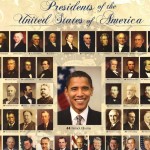 Back in January the Theological Study Group East of the NIC read and discussed Willie James Jennings’s The Christian Imagination: Theology and the Origins of Race. Dr. Jennings is Associate Professor of Theology and Black Church Studies at Duke Divinity School. We had a fruitful discussion of his excellent book. I’ve been meaning to share a thought or two that whacked me upside the head, and today presents that opportunity as inspired by a question posed by Julie Clawson to David Fitch and Geoff Holsclaw that Fitch posted on his Facebook:
Back in January the Theological Study Group East of the NIC read and discussed Willie James Jennings’s The Christian Imagination: Theology and the Origins of Race. Dr. Jennings is Associate Professor of Theology and Black Church Studies at Duke Divinity School. We had a fruitful discussion of his excellent book. I’ve been meaning to share a thought or two that whacked me upside the head, and today presents that opportunity as inspired by a question posed by Julie Clawson to David Fitch and Geoff Holsclaw that Fitch posted on his Facebook:
Why is it always white, middle-class, highly-educated males who argue that dying to the self for the sake of commitment and accountability to a local church despite disagreement, silencing, or abuse is the only way one can be a part of the kingdom of God?
To which Fitch replied:
I think it’s (always) a good question. My answer was “Because white middle class highly educated males must be first in line in submitting false power/hierarchy to the cross. Such submission does not silence other voices, but makes way for all voices to be heard.” The giving up of (worldly) power is inherent to the way of the lamb. What do you think?
What do I think? “Why is it always white … ?” Because, in the words of Willie James Jennings:
“Whiteness is co-creator with God. Morrison [Toni] states further, ‘… Whiteness, alone, is mute, meaningless, unfathomable, pointless, frozen, veiled, curtained, dreaded, senseless, implacable'” (62).
To summarize Jennings, whiteness is the cultural state of being that views itself as “unconditioned” and thus has the privilege of conditioning all other states of being and identities. I’d add maleness to that equation, too. Whiteness and maleness, however, are also conditioned, of course, like all identities, but their conditioning is rooted in the classical theology of the West that typifies God with these attributes of privilege, immutability, and incomprehensibility. Therefore, imitating Christ reduces to “submission” to God and, in theory, “makes way for all voices to be heard.” However, this self-deprecating, martyr-like propensity of “white middle class highly educated males” to submit “false power/hierarchy to the cross” reinforces the status that white males have the power and the privilege in the first place to submit and, further more, that they (OK, enough third person, “white male” writing here) “we” have the privilege of picking and choosing when and how to submit, whereas many people do not have the same liberty to act apart from their racialized location in society.
For an example of the latter and the reverse racial politics of submission, think of all the nonsense hurled at Barack Obama when running for president in 2008 and even during his presidency, the ignorant conflation of black liberation theology / Jeremiah Wright with Obama’s beliefs, all the birtherism crud, the charges of elitism, the hate-filled spam emails with racist imagery, the charges of anti-Americanism, and on and on. That’s not even mentioning the attacks on Obama from the left rooted in stereotypical progressive politics as champions of “minorities.”
Thoughts for the itinerant church:
The church can and should critique power, position, and status, especially when societal structures demean and discriminate against whole people groups through racial and ethnic categories. However, while there are many relevant critiques to be made of “false power,” the church and individuals within the church should recognize first what power they have, recognize that power for what it is (earthly and thus temporary), and submit their power to be redeemed by God. This may or may not mean “giving up” power. For example, there is power in nonviolent resistance; should the church give up that kind of power? This is where the qualification of “false” power is important, which Fitch rightly makes that distinction. But submitting “white male” privilege “to the cross” to make “way for all voices to be heard” presumes and reinforces “white maleness” as the norm for and gatekeeper of public discourse, and worse, of the means of salvation. See Jennings, The Christian Imagination, for in-depth analysis of the history and theology behind Eurocentric Christian mission and its legacy.
This is not to say that we who are white males need not submit our privileged position and false power to the cross. We should … just as we all should submit false power to the cross, and the line is long. As we who are white males get in line, we hopefully realize that to be “first in line” is an ironic metaphor for the privileged few that we are.


